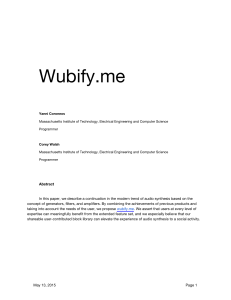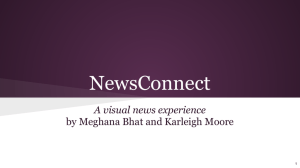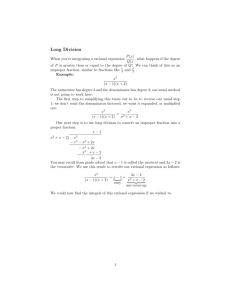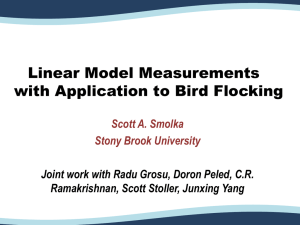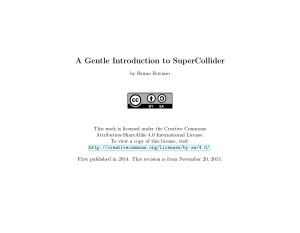Wubify.me Corey Walsh + Yanni Coroneos 1
advertisement
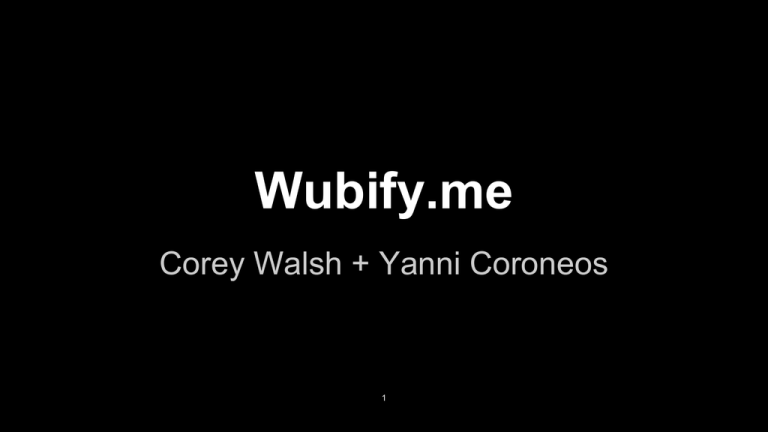
Wubify.me Corey Walsh + Yanni Coroneos 1 Introduction and Inspiration Music today is often made with synthesizers Large learning curve and/or monetary obstacles Goals: Improve accessibility and usability of existing tools Explore new possibilities through digital representation 2 Background Mixers and Synths Relatively easy to control, harder to set up Algorithmic music generation software - SuperCollider Powerful Core Concept: Generators, Filters, and Amplifiers 3 Keep only the good parts Mixers and Synths: Mostly intuitive physical interface Good visualization of interconnections SuperCollider: Extremely powerful Mathematically rigorous Flexible 4 Skip the bad parts Mixers and Synths: Limited by physical space Inflexible SuperCollider: Difficult to use requires coding skills Difficult to visualize 5 Concept Digital blocks represent filters or generators Signals “flow” across digital wires Additionally: The workspace is synchronized A shared block library allows people to share building blocks 6 So what? Sonic Functions as Objects New paradigm of sound composition Generators and filters replace individual notes Topology becomes more important than sound A Narrative With History Old synth blocks can be added to Stories can form around them 7 So what? Pt II Real-time Collaboration Public access introduces fluidity Instant feedback Integration with other sources WAV upload Arbitrary function blocks 8 But how? Joint.js + Flocking! Flocking: a declarative in-browser audio synthesis framework Joint.js: an interactive graph construction UI library. 9 Development It’s all about representation Visual blocks handled by Joint.js Underlying code representation from Flocking.js Visual representation ↔ code representation Synchronization at UI level 10 How does it work? 11 Say What? 12 Future Directions Sequencer SuperCollider integration Workflow tools - algorithmically generate block synths Relation to other mediums 13 Demo, Thank you & Questions 14 MIT OpenCourseWare http://ocw.mit.edu CMS.633 / CMS.833 Digital Humanities Spring 2015 For information about citing these materials or our Terms of Use, visit: http://ocw.mit.edu/terms.
